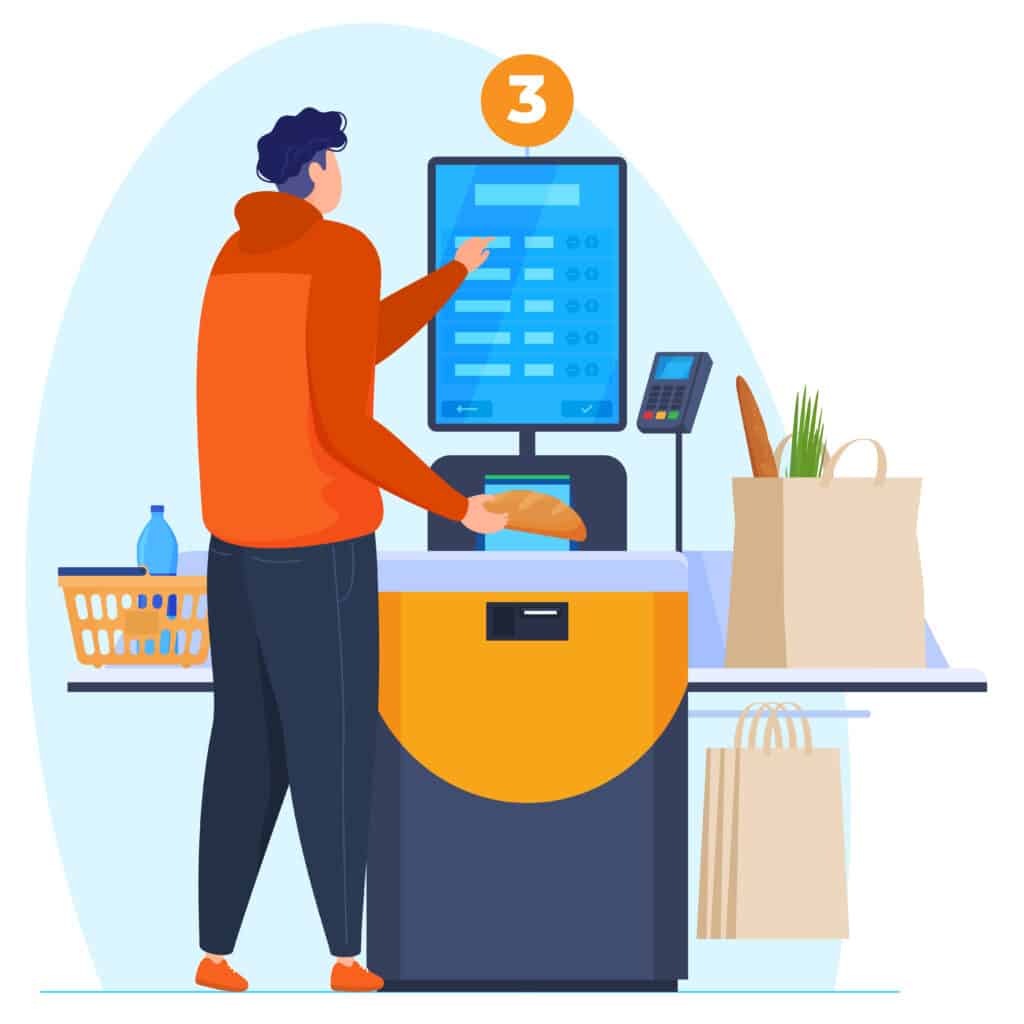Imagine a world where shopping was as seamless and efficient as the click of a button. Well, thanks to point-of-sale technology, that world is becoming a reality. Point of sale (POS) systems are revolutionizing the way businesses handle transactions, offering an array of benefits for both merchants and customers alike. From streamlining sales processes to enhancing customer experiences, this article will delve into the fascinating world of point-of-sale systems and explore how they are reshaping the retail landscape.
What is a Point of Sale (POS)?
At its core, a Point of Sale (POS) system is a combination of hardware and software that allows businesses to process transactions and manage sales. But it’s so much more than just a cash register. POS systems have evolved over the years, becoming powerful tools that contribute to the overall success of a business.
Beyond simple transaction processing, modern POS systems offer an array of features that streamline operations and enhance customer experience. Inventory management capabilities provide real-time data on stock levels and enable businesses to track sales trends efficiently. Many POS systems also integrate with other software, such as accounting or CRM platforms, ensuring seamless data flow across various departments.

Moreover, today’s POS technology has expanded beyond traditional brick-and-mortar stores into eCommerce and mobile platforms. With cloud-based solutions, businesses can access their sales and inventory information from anywhere at any time. This flexibility empowers retailers to adapt quickly to market demands while offering customers convenient shopping experiences across multiple channels.
In conclusion, the key takeaway about Point of Sale (POS) systems is their role in transforming how businesses manage transactions and operations. From streamlining inventory management to expanding business capabilities through integration with other software platforms, an effective POS system is essential for staying competitive in today’s retail landscape. The evolution towards cloud-based solutions further empowers retailers by allowing them to operate seamlessly across different channels while providing exceptional customer experiences.
Benefits of Using a POS System
Using a POS system offers numerous benefits to businesses, big or small. One of the key advantages is the ability to streamline operations and increase efficiency. With a point of sale system, you can automate tasks such as inventory management, order tracking, and sales reporting. This not only saves you time but also helps reduce errors that are common with manual processes.
Another major benefit is improved customer service. A POS system allows for faster transaction processing, which means shorter wait times for your customers. Additionally, it gives you access to valuable customer data that can help personalize their shopping experience. For instance, you can track their purchase history and preferences to offer tailored promotions or recommendations.
Moreover, using a POS system provides better financial control and accuracy in tracking revenue. It enables you to generate real-time reports on sales figures and cash flow, helping you make informed business decisions. By having accurate data at your fingertips, you can identify trends in sales and adjust your marketing strategies accordingly.
In conclusion, adopting a POS system brings significant advantages to businesses by streamlining operations, enhancing customer service quality through faster transactions and personalized experiences while providing financial control through accurate revenue tracking – ultimately contributing to overall business growth
Key Features to Look for in a POS System
When it comes to choosing a point of sale (POS) system for your business, there are several key features that you should look for to ensure it meets your needs and helps streamline your operations. One important feature is inventory management capabilities. A good POS system should allow you to easily track and manage your inventory, providing real-time updates on stock levels and helping you avoid overstocking or understocking items.
Another crucial feature is reporting and analytics. A POS system should provide detailed reports on sales, customer behavior, and other relevant data that can help you make informed business decisions. By analyzing this information, you can identify trends, understand buying patterns, and assess the performance of different products or promotions.
Integration with other systems is also worth considering. A POS system that can seamlessly integrate with other software applications such as accounting or e-commerce platforms can save time and effort by automating data transfers between systems.
Overall, when selecting a POS system for your business, make sure it offers robust inventory management capabilities, comprehensive reporting and analytics tools, as well as integration options with other software applications. These features will not only help improve efficiency but also enable better decision-making based on accurate data analysis.
Different Types of Point-of-Sale Systems
There are several different types of point-of-sale systems (POS) available in the market today, each with their own unique features and benefits. One popular type is the cloud-based POS system. This type of system allows businesses to access their sales data from any device with an internet connection, making it ideal for businesses that have multiple locations or require remote access.
Another type of POS system is the mobile POS system, which allows businesses to process payments and track sales on a mobile device such as a smartphone or tablet. This can be particularly useful for small businesses or vendors who operate in a mobile setting such as food trucks or pop-up stores. Mobile POS systems also offer the advantage of being portable and user-friendly, making them accessible to employees with varying degrees of technical expertise.
In addition to these modern POS systems, there are also traditional hardware-based systems that use dedicated equipment like cash registers and barcode scanners. While these systems may lack some of the advanced features found in cloud-based or mobile systems, they can still provide reliable and efficient functionality for smaller businesses with less complex operations. In conclusion, when choosing a point-of-sale system, it’s important to consider factors such as business size, needs for mobility or remote access, and budget constraints in order to find the best fit for your specific business requirements.
How to Choose the Right POS System for Your Business
When it comes to choosing the right POS system for your business, there are several factors to consider. Firstly, you need to assess the specific needs and requirements of your business. Are you a small retailer or a large restaurant? Do you have multiple locations or just one? Understanding your business’s unique needs will help narrow down the options and find a system that is tailored to your operations.
Another crucial aspect to consider is scalability. As your business grows, so should your POS system. Look for a solution that can handle an increase in sales volume and accommodate additional features as needed. Consider whether the system offers integrations with other software tools that you currently use or might need in the future, such as inventory management or customer relationship management platforms.
Lastly, don’t forget about user-friendliness. A POS system should be intuitive and easy to navigate for both you and your employees. Test out demos or trials of potential systems before making a decision to ensure that it aligns with your workflow and doesn’t require extensive training.
By carefully considering these factors – business needs, scalability, and usability – you can select the right POS system that will streamline operations, enhance customer experience, and ultimately contribute to the growth of your business.
Implementing and Training Your Staff on a POS System
Implementing and training your staff on a Point of Sale (POS) system is a crucial step in streamlining your business operations and enhancing customer service. However, many businesses overlook the importance of effectively training their staff on how to use the POS system to its fullest potential.

One key aspect of training is providing clear expectations and guidelines for using the POS system. This includes teaching your staff how to input sales transactions, process payments, handle returns or exchanges, and generate reports. By setting these expectations from the beginning, you can ensure that all employees are on the same page and minimize errors or misunderstandings.
Another important element in staff training is ongoing support and reinforcement. Implementing a new POS system may be overwhelming at first, so it’s vital to provide regular check-ins with your team to address any questions or concerns they may have. Additionally, consider using a tiered approach to training by designating super-users who are proficient in all aspects of the system. These super-users can then serve as resources for other employees when they encounter challenges or need additional guidance.
Overall, investing time and resources into properly implementing and training your staff on a POS system can greatly benefit your business. Not only will it increase efficiency and accuracy in daily operations but also improve the overall customer experience by facilitating smooth transactions. Take proactive measures to ensure that everyone understands how to navigate the system effectively so that you can reap all its benefits.
Conclusion: Enhancing Efficiency and Sales with Point of Sale
In conclusion, leveraging a point-of-sale system can greatly enhance efficiency and sales for any business. By streamlining the transaction process and facilitating accurate inventory management, businesses can save valuable time and reduce costly errors. Additionally, with the ability to track customer data and preferences, businesses can personalize their offerings, improving customer satisfaction and increasing opportunities for upselling.
Furthermore, point of sale systems allow businesses to easily analyze sales data to identify trends and make informed decisions. With real-time reporting capabilities, retailers can quickly identify which products are selling well and adjust their inventory accordingly. This not only helps optimize stock levels but also minimizes the risk of overstocking or understocking items.
Working with United Banc Card of TN
If you find yourself wanting to conquer your restaurant, retail shop, look no further than United Banc Card of TN. With their innovative solutions and trusted POS System services, they will guide you towards financial success. Whether you are a small business owner or an individual looking to manage your finances better, United Banc Card of TN has the tools and expertise to help. Call us today @ 615-476-0255
